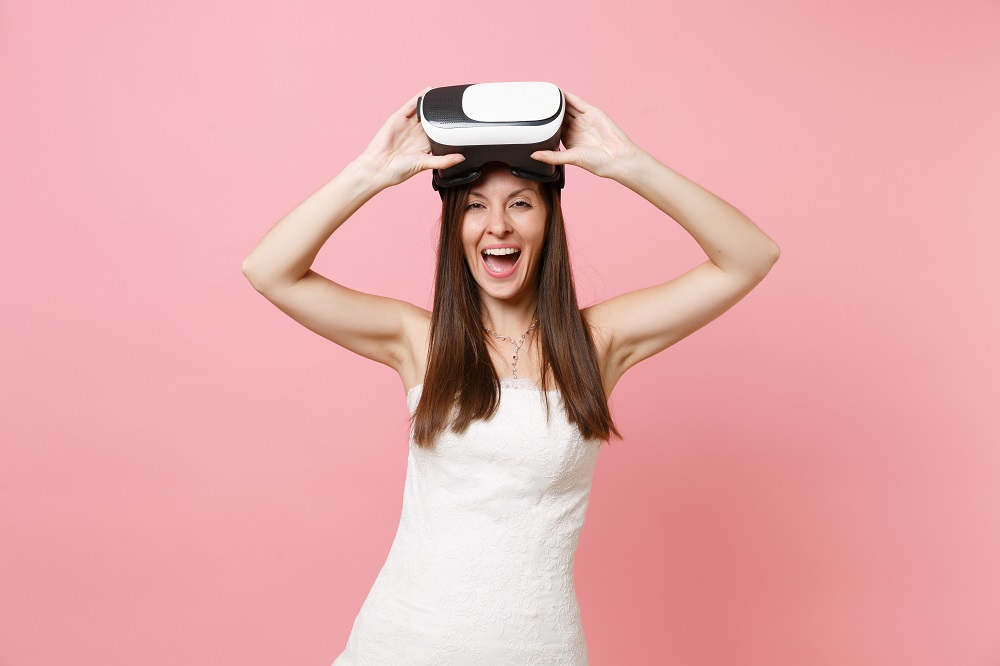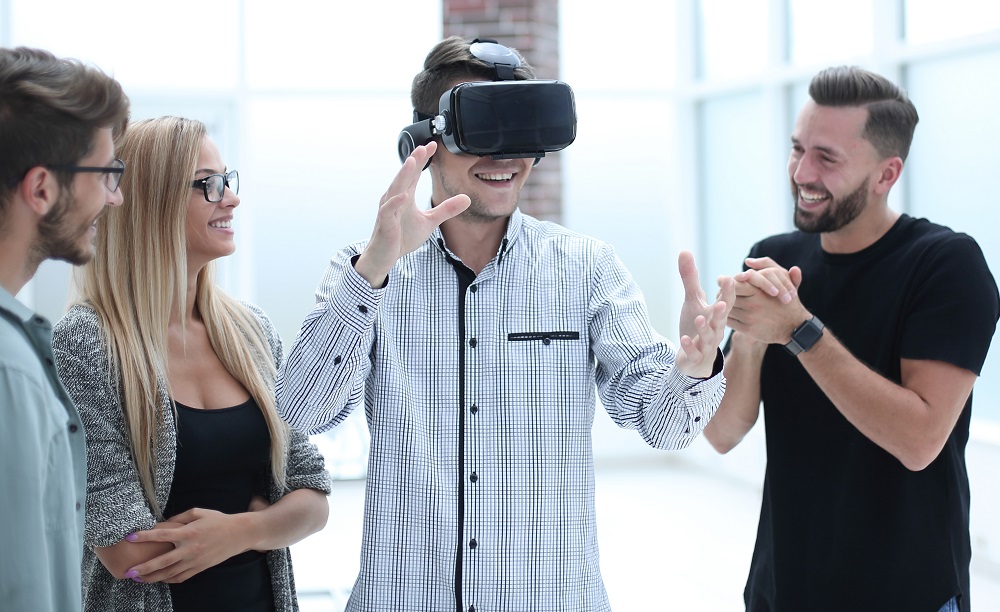Virtual Reality is a technology that allows users to immerse into three dimensional environments with the help of a headset and/or lenses. VR allows users to simulate a real experience in 360 degrees.
Nowadays, there are plenty of industries using with examples of Virtual Reality to transport clients to places they have never been, imaginary places or promoting their products/services with its help, leveraging it for product promotion and virtual storytelling.
Virtual Reality: examples in marketing experiences

We hope that with this article you can gather some ideas related to marketing innovation, content marketing, or visual storytelling that can give you some insights on how to better interact with your digital audience.
So, if you’re interested in a VR experience for your brand or are looking for some inspiration, below we present to you 10 examples of our favorites Virtual Reality examples.
1) Key Technology
Is a manufacturer and designer of food processing systems that created a Virtual Reality demo. This B2B campaign allowed the attendees of the Pack Expo food packaging trade show how the VERYX digital food platform works through a VR experience that granted the participants what the process looks like from the inside of the machine.
2) Limbic Life
Limbic Life created the Limbic Chair that is paired with a VR headset, it allows users to move their bodies intuitively while being able to virtually experience day to day life with a rehabilitative use of their limbs.
3) Adidas
Adidas made a Virtual Reality campaign that follows a 360-degree view of a mountain-climbing journey of two extreme athletes. Using a VR headset and sensory remote controls, viewers were able to scale with the athletes. This magnific Virtual Reality campaign marketed a line of outdoor apparel and accessories and at the same time presented the possible clients a new immersive experience.
4) Toms
Toms is a shoe company that donates one pair of shoes to a little kid in need each time a client buys a pair. Through a VR headset the brand wanted to inspire people to give more. The VR experience begin with the story of Toms’ founding while taking viewers on a trip to Peru where their team visit a school and donates the children some shoes for the first time. This brand found a way to show people where exactly their money is going to while also giving them a heartwarming and intimate experience.
5) DP World
DP World is a trade company that helps other businesses to transport goods internationally. The brand found a new and exciting way to let see their public what they have to offer with a 360-degree tour of DP World’s terminals.
6) Walmart
Walmart is trying out augmented reality in some of their physical retail stores via an app to do inventory control, it helps to speed up the time it takes to transport items back the backroom to the sales floor. Instead of scanning every box, the augmented reality device allows the employees to highlight the boxes ready to go. Although it doesn’t seem too disruptive, this type of new tech will serve your customers by giving them a faster and effective service.
7) Snap
Snap made a disruptive campaign using AR tool that enabled users to virtually spray paint above the street’s shops. The “City Painter” campaign is a collective experience, meaning that the changes made by one person can be seen collectively in real time. This is the first example at big scale of Local Lenses – Snap’s ambition serving to create a virtual world.
8) Ikea
With the help of augmented reality Ikea offers to create a functional and immersive experience by allowing the users to place virtual furniture in a room with the Ikea Place app. Also, now with the new Ikea Studio app, using the LIDAR sensors in iPhones enables users to capture 3D room plans and allows them to also re-design them, from windows, to doors and wall colors.
9) Amazon
Has set up a trial retail technology called “point and learn” where customers can point at a product and relevant information, brand videos and educational content will display on the screen, if interested in the product the user has to scan the QR code to redirect them to the page to buy it. This AR tech tool will also allow customers to play with different hair shades to see with one they like best before getting their hair done.
10) Sephora
A great example of AR tech in beauty would be the Sephora’s “Virtual Artist”. This app lets customers see what makeup products would look like on them. The tech it uses to achieve this is called Modiface and works by scanning lips and eyes before overlaying different types on make up and colors. This type of brand experience can boost your sales while providing entertainment and inspiration to your clients.
In Stringnet we can create a VR brand experience for you
We are sure that after reading all the disruptive examples of virtual reality and augmented reality you’re thinking to yourself, should my brand get into the VR/AR experiences? Is it too high-priced?
In Stringnet we are available to make a consultation with you and are willing a accommodate according to your budget and vision of your brand.
Don’t hesitate to contact us and be a part of the future today!


